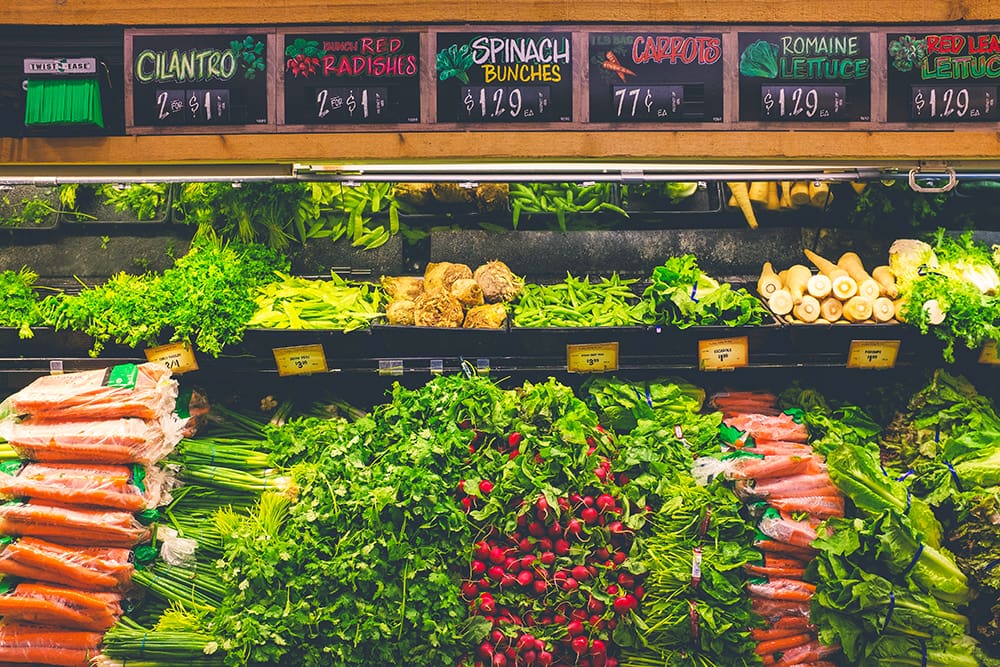Celebrity Chef Ingrid Hoffmann has partnered with the American Diabetes Association to publish a new cookbook, Latin Comfort Foods Made Healthy: More Than 100 Diabetes-Friendly Latin Favorites.

With improving health and dietary habits being top of many New Year’s resolution lists, we’re sharing some key tips from Chef Hoffmann on simple steps you can take to start cooking healthier meals at home.
Cooking At Home Puts You In Control
“Yes, it’s hard to break engrained patterns, but it’s so worth it,” says Hoffmann. “Cooking at home is the best way to stay in control of what you eat and monitor your intake of processed foods, fat, salt, and sugar. And there’s no time like the new year to get started with this healthy habit.”
Make sure you have the essential tools. To start cooking regularly, you really need only a few basic tools. Make sure you’ve got a sharp knife, a vegetable peeler, a cutting board, a colander, a skillet, a large pot, a roasting pan, and a baking dish or two. A pressure cooker is also handy for preparing quick meals on busier days. With these foundational pieces, you can make a wide array of dishes. (Don’t worry; you can always stock up on more kitchen supplies later on.)

Build an herbs and spices collection. Spices and herbs, dried or fresh, bring your food to life in a way that nothing else can. And you don’t have to buy out the entire seasoning aisle to cover the basics. Start with cumin, paprika, garlic, onion powder, oregano, chili powder, turmeric, ginger powder, cinnamon, and adobo seasoning. For herbs, try cilantro, parsley, mint, rosemary, and basil. Hint: If you don’t want to keep buying store-bought fresh herbs, try growing your own in your garden or in a windowsill box.
Create a weekly meal plan. Meal planning is simply a system of choosing your meals in advance. By selecting several recipes that contain similar ingredients, you can get more use out of your groceries and reduce food waste. Flip through your favorite cookbooks to choose several recipes that sound good and start a grocery list for the week.
Keep it simple (mostly). “Remember, you don’t have to cook extravagant dinners every night of the week,” says Hoffmann. “You’ll get just as much satisfaction from a simple dinner of grilled fish and veggies as you would from an elaborate multi-course feast. Save the ‘fancy’ dinners for special occasions and you’re sure to keep up with your new healthy home cooking habit.”

Hit the market. You can’t cook without ingredients, so go to the grocery store armed with a list of every item you’ll need to cook healthy meals in the upcoming week. Some people like to shop for the entire week while others prefer making more frequent tips. Over time you’ll figure out what works best for you and your family. When you’re planning and shopping, focus on in-season fruits and veggies (they’ll be fresher and are often less expensive). Also, keep an eye out for good deals on cuts of lean meat that you can purchase and freeze for later.
Do your prep work in advance. “After you do your weekly shopping trip, spend some time prepping the food you purchased,” says Hoffmann. “This helps you save time when you’re ready to cook. Start by washing your produce. If you purchased a head of lettuce, this would be a great time to separate, clean, and dry the leaves to be used for salads or lettuce wraps. Next, chop any vegetables you’ll be using in stir-fries, soups, or salads over the next few days. These ingredients will be patiently waiting for you when you need them.”

Start bagging your lunch. Bringing a home-packed lunch to work or school is a great way to save money and incorporate more homemade meals into your diet. The options for lunch are endless. You could pack a salad with fresh veggies and chicken, or tuna salad wrapped in endive leaves, or even a slice of last night’s casserole for a quick and tasty midday meal. Add a small serving of fruit or sliced veggies with guacamole, and you’re all set!
Start a weekly batch cooking habit. Even if you make diligent meal plans, it may not be convenient to cook every single day. Batch cooking can help you save time during your busy week by cooking several meals at once during a time that’s convenient for you. Set aside a few hours to prepare several full meals on a weekend or an afternoon when you won’t be rushed. Parcel the meals into containers and refrigerate or freeze them so they’re ready when you need them.
Pull out the pressure cooker. On busy evenings, let your pressure cooker do the work for you. Pressure cookers can cook almost anything, but they are especially useful for preparing beans, stews and chilis, or tougher cuts of meats in less time. Just prep your ingredients, throw them in, and you’ll have a delicious meal ready to eat in under an hour.
“The new year is the perfect time to commit to taking better care of yourself,” concludes Hoffmann. “Not only will you improve your health by cooking at home, but you may discover that you really enjoy cooking a delicious meal from scratch. Either way, nothing beats the peace of mind from knowing that you’re doing what’s right for your health.”


You must be logged in to post a comment.